You don’t necessarily need to buy a dedicated activity tracker to record your daily steps, as some of the latest smartphones have this functionality built right in. But is now the time to throw away your kéwalker for good?
As has done before, we once again pitted the HTC One (M8) against the Samsung Galaxy S5. This time, however, we focused only on the accuracy of the two smartphones’ step-tracking functions. Can the sensors pedometer apps in the world’s most celebrated flagship phones replace dedicated wearables like the Fitbit Flex wbone U4? took to the streets of San Francisco to find out.
The Competition
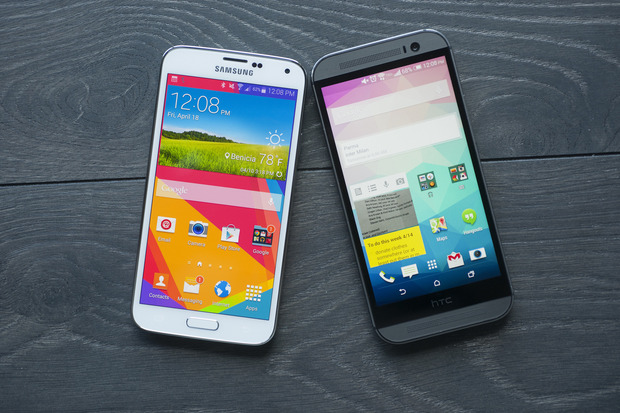
HTC One (M8)
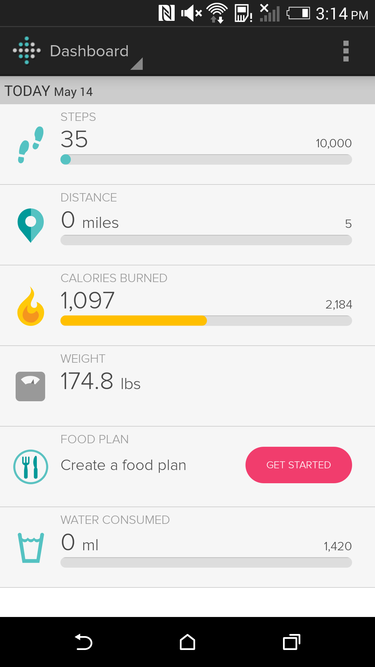
The HTC One (M8) uses the stard Fitbit app to report step counts.
The HTC One (M8) ships with a “sensor hub,” an equivalent to the M7 co-processor found in the ione 5S. This low-powered, secondary processor can collect data from HTC’s various sensors, enabling movement tracking without taxing the phone’s primary processor.
Instead of designing its own home-made app to track your stats, HTC taps into Fitbit’s app to hle the dirty work. HTC has also integrated Fitbit into BlinkFeed, allowing your step data to appear right in the stream. Of course, you’ll also be able to sync any data from your Fitbit wearable as well.
Samsung Galaxy S5
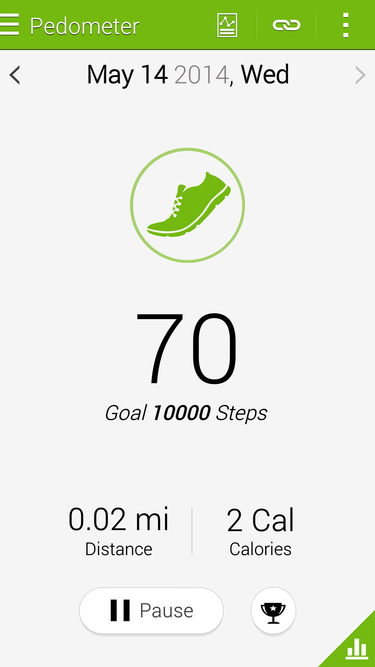
The Galaxy S5’s step counts are reported in Samsung’s S Health app.
Samsung is no stranger to sensor hubs, as one was featured in the Galaxy S4, pairing up with Samsung’s own S Health app. The Galaxy S5 goes above beyond by allowing you to check your heart rate via a finger sensor on the back of the phone, but we’ll only be looking at step data in this article.
Samsung has redesigned S Health with a more straightforward UI, I find its overall design simplicity to be superior to Fitbit’s approach. Still, a well-designed app doesn’t necessarily make for a more functional experience when it comes to core features.
The Test
To test pedometer accuracy, I placed each phone in my right front pants pocket, literally counted my steps as I walked the streets of San Francisco. The testing regimen included four different exercise scenarios, each totaling exactly 250 steps—, yes, I counted my steps out loud as I booked down the street.
My tests included one round of jogging, one round of walking at a normal pace, two rounds of fast walking (I thought a second round was necessary because the first round yielded horribly inaccurate results). After counting 250 steps each round, I stopped to note the data recorded by the two phones.
The Results
As you can see from the chart below, the Galaxy S5 was off by 63 steps—or 25.2 percent—in the normal walking test. This proved to be the worst round for the Samsung hset, its only truly notable failing in terms of accuracy. The HTC One (M8) did much better in the basic walking test, failing to record only six steps of the 250 I took.
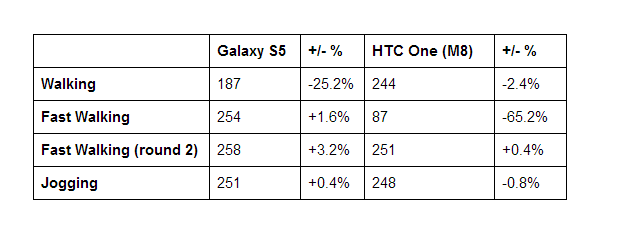
By far the largest variation in steps was the first “fast walking” round. Here the HTC One recorded only 87 steps—meaning 163 steps were never picked up by either the device’s sensors, co-processor or Fitbit app. This gross inaccuracy, however, was quickly redeemed by my next round of fast walking with a nearly perfect score.
en moving at a faster pace, your feet hit the ground harder, so perhaps it comes as no surprise that the jogging round demonstrated the most accurate results. The Galaxy S5 came in at just one step over 250, while the HTC one (M8) was only two steps below 250.
Other Notes:
- The time between when a step was taken when the step was recorded widely varied for the two phones. Samsung’s S Health seemed to report every step as it was taken, but the Fitbit app had a tendency to report steps three or four (if not more) at a time.
- The results show that the Galaxy S5 over-counted steps three out of four rounds, where the HTC One (M8) under-counted steps three out of the four rounds. ll, if nothing else, both devices were consistent in their inconsistency.
- It’s incredibly easy to fake extra steps—all it takes it shaking one of the phones in your h—so these pedometer proxies should really only be used in your pocket.
- Speaking of which: It’s important that remember that you won’t track any steps when your phone is recharging or otherwise sitting on a table. For this reason alone, many people prefer wristb step trackers, which have much longer battery lives won’t weigh down gym or running shorts.
ap-up
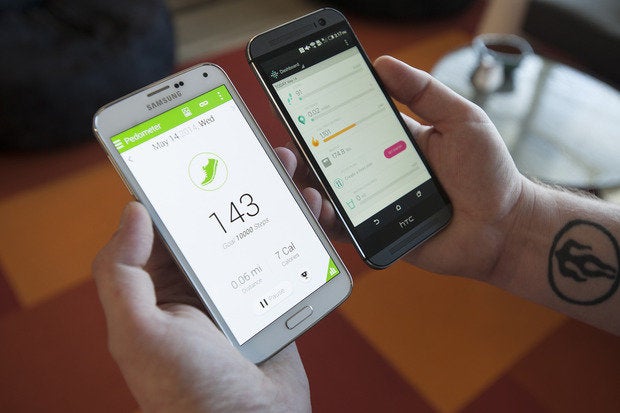 Mike Homnick
Mike HomnickBoth the Galaxy S5 HTC One (M8) can count your steps, but don’t expect consistently accurate results. Considering that in two different tests, the S5 One (M8) suffered inaccuracy rates of -25.2 percent a staggering -65.2 percent respectively, it’s impossible to consider either phone a reliable tool for step counting. That said, both came very close to that magic 250-step number in other rounds, proving they’re at least capable of reliable reporting.
Between the two phones their respective applications, I’d probably go with the Samsung Galaxy S5 S Health. The delay between when a step is taken recorded is significantly shorter than with the Fitbit application. at’s more, the S5 didn’t suffer the bizarre -65.2 percent under-counting of the HTC One (M8).







